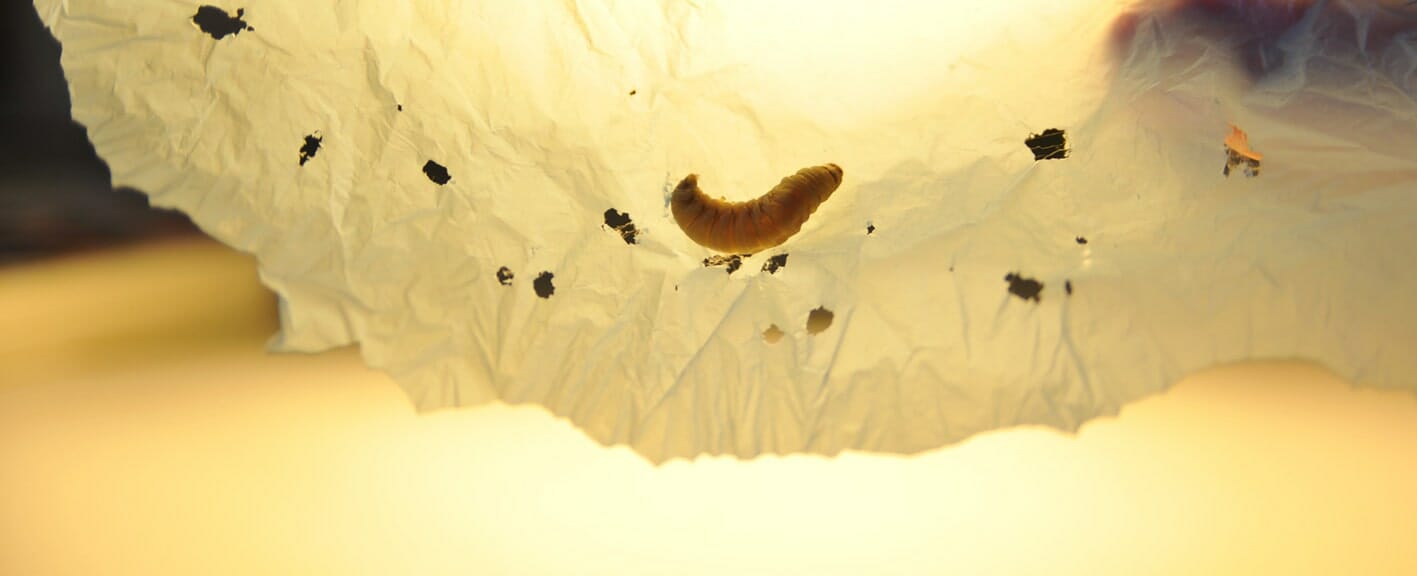
A Larvae against Plastic Waste
The Röchling Foundation supports Research Project in Spain
Does she or does she not? In 2017 the larvae of the wax moth caused an international sensation. The Italian biologist Dr. Federica Bertocchini observed that the wax moth larvae easily ate through plastic bags without leaving any residue. As a scientist, she got to the bottom of the matter and found out that the larvae were able to metabolize certain plastics. A chance for the biological degradation of plastic waste?
Her following publications on this matter met with enthusiastic interest and skepticism among experts. Critics suspected that the larvae does not break down the plastic, but only excretes them in a greatly reduced form.
Federica Bertocchini now has the opportunity to intensify her research at the renowned Centro de Investigaciones Biológicas (CIB) in Madrid. The Röchling Foundation is funding her with a three-year research project (2019 to 2021). At the Biological Research Centre in the Spanish capital, Dr. Bertocchini finds the best conditions not only for verifying her results, but also for developing application possibilities with her team.
The CIB is part of Spain’s largest public scientific institution, the Consejo Superior de Investigaciones Científicas (Supreme Council for Scientific Research).
“We are very pleased to enable Dr. Bertocchini to deepen her promising research in a world-class environment. We hope to gain important insight into whether the biological degradation of conventional plastics can make a serious contribution to solving environmental problems through plastics in the medium and long term,” says Annunziata Gräfin Hoensbroech, Chairman of the Board of Trustees of the Röchling Foundation, explaining the funding decision.
What does the wax moth larva really do? We will know more soon.

